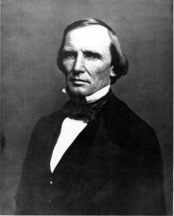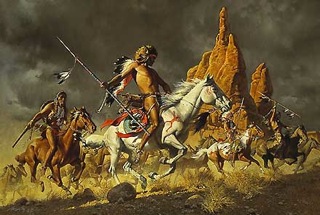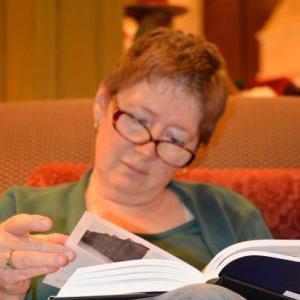Ben McCulloch was a hero, but most of us don’t know who he was. Yet Ben McCulloch fought in the Texas revolution (barely missing dying at the Alamo), he fought the Comanches, he was a Texas Ranger, a U.S. marshal and a Confederate brigadier general.  McCulloch was born in Tennessee in 1811 and David Crockett eventually became one of the McCullochs’ neighbors and closest friends. In 1835, Ben and his brother Henry decided to follow Crockett to Texas. They planned to meet in Nacogdoches on Christmas day. Ben and Henry didn’t get there on time and Ben tried to catch up with Crockett, who had left for San Antonio. But Ben got the measles and Santa Anna got to the Alamo before Ben did. That didn’t stop Ben from fighting. He joined Sam Houston’s army, fought at the Battle of San Jacinto and earned a battlefield commission as first lieutenant. At that point, the revolution was more or less won and Ben began working as a surveyor in Gonzales and Seguin. But Ben McCulloch was a restless man. He soon joined the Texas Rangers and won a reputation as an Indian fighter. In 1839, McCulloch was elected to the Texas House of Representatives. Ben is sometimes criticized for his rifle duel with Reuben Ross. It’s complicated. Alonzo Sweitzer, one of Ben’s political enemies, originally challenged Ben to the duel. But he sent his friend Reuben to issue the challenge for him. Ben told Ross he wouldn’t fight Sweitzer because Sweitzer wasn’t a gentleman. Those were fighting words and, predictably, Reuben Ross took offense and challenged Ben to a duel. This time, Ben accepted the challenge. The two men faced off with rifles, at forty paces, two miles north of Gonzales. Ross shot McCulloch, permanently crippling his right arm. Ross, who seems to have been a good man, sent his doctor to treat McCulloch and expressed his regret at having “to meet so brave a man in a private encounter.” Ross’s gallant behavior didn’t save him. Henry McCulloch shot and killed Ross a few months later. Ross was reported to have gotten drunk and picked a fight with Henry. Robert S. Neighbors, an Indian agent and Texas state legislator, killed Sweitzer in 1841. Ben quit politics and returned to surveying and fighting Indians. At the Battle of Plum Creek (fought against the Comanches) on August 12, 1840, Ben commanded the right wing of the Texas army. The Texans won.
McCulloch was born in Tennessee in 1811 and David Crockett eventually became one of the McCullochs’ neighbors and closest friends. In 1835, Ben and his brother Henry decided to follow Crockett to Texas. They planned to meet in Nacogdoches on Christmas day. Ben and Henry didn’t get there on time and Ben tried to catch up with Crockett, who had left for San Antonio. But Ben got the measles and Santa Anna got to the Alamo before Ben did. That didn’t stop Ben from fighting. He joined Sam Houston’s army, fought at the Battle of San Jacinto and earned a battlefield commission as first lieutenant. At that point, the revolution was more or less won and Ben began working as a surveyor in Gonzales and Seguin. But Ben McCulloch was a restless man. He soon joined the Texas Rangers and won a reputation as an Indian fighter. In 1839, McCulloch was elected to the Texas House of Representatives. Ben is sometimes criticized for his rifle duel with Reuben Ross. It’s complicated. Alonzo Sweitzer, one of Ben’s political enemies, originally challenged Ben to the duel. But he sent his friend Reuben to issue the challenge for him. Ben told Ross he wouldn’t fight Sweitzer because Sweitzer wasn’t a gentleman. Those were fighting words and, predictably, Reuben Ross took offense and challenged Ben to a duel. This time, Ben accepted the challenge. The two men faced off with rifles, at forty paces, two miles north of Gonzales. Ross shot McCulloch, permanently crippling his right arm. Ross, who seems to have been a good man, sent his doctor to treat McCulloch and expressed his regret at having “to meet so brave a man in a private encounter.” Ross’s gallant behavior didn’t save him. Henry McCulloch shot and killed Ross a few months later. Ross was reported to have gotten drunk and picked a fight with Henry. Robert S. Neighbors, an Indian agent and Texas state legislator, killed Sweitzer in 1841. Ben quit politics and returned to surveying and fighting Indians. At the Battle of Plum Creek (fought against the Comanches) on August 12, 1840, Ben commanded the right wing of the Texas army. The Texans won.  In February 1842, when the Mexican government launched a raid against Texas and seized San Antonio, McCulloch scouted enemy positions and helped push Mexican raiders back across the Rio Grande. On September 11, 1842, a second Mexican expedition captured San Antonio. Ben again fought, helping to defeat the Mexicans. After helping to defeat the second Mexican invasion, McCulloch remained with a ranger company. That company was part of an army that would (it was planned) invade Mexico. Ben and Henry, however, believed the Somervell Expedition was not well managed and they went home. Good thing too, because the expedition was a disaster and many of the men were killed. After Texas joined the Union, McCulloch was elected to the First Legislature and after the Mexican War began he raised a Texas Ranger company. Ben was soon named chief of scouts for the American army and won great admiration for his reconnaissance into northern Mexico. Leading his mounted infantry company at the battle of Monterrey, McCulloch further distinguished himself, and before the battle of Buena Vista his daring scouting saved the army and won him a promotion as major of United States volunteers. McCulloch returned to Texas at the end of the war and served for a time as a U.S. Army scout In 1849, however, when gold was discovered in California, Ben hightailed it to Sacramento and was eventually elected sheriff. A few years later, friends lured McCulloch back to Texas and he was appointed United States marshal for the Eastern District of Texas. In 1858, he was appointed one of two peace commissioners to treat with Brigham Young (in Utah) and the elders of the Mormon Church. Ben is credited with helping prevent war between the United States government and the Church of the Latter-Day Saints. When Texas seceded from the Union, Ben was first commissioned a colonel and then Jefferson Davis promoted him to brigadier general, the second-ranking brigadier general in the Confederate Army and the first general-grade officer to be commissioned from the civilian community. McCulloch commanded Indian Territory and made friends with the Cherokees, Choctaws, Creeks, and other tribal peoples. Many a good man died in the Civil War. McCulloch commanded the Confederate right wing at Pea Ridge, or Elkhorn Tavern, and on March 7, 1862, overran a battery of artillery and drove the enemy from his original position. As federal resistance stiffened around 10:30 a.m., however, McCulloch rode forward through the thick underbrush to find the enemy line. He was shot from the saddle and killed. McCulloch was first buried on the battlefield, but his body was removed to the cemetery at Little Rock and reburied at the state cemetery in Austin.
In February 1842, when the Mexican government launched a raid against Texas and seized San Antonio, McCulloch scouted enemy positions and helped push Mexican raiders back across the Rio Grande. On September 11, 1842, a second Mexican expedition captured San Antonio. Ben again fought, helping to defeat the Mexicans. After helping to defeat the second Mexican invasion, McCulloch remained with a ranger company. That company was part of an army that would (it was planned) invade Mexico. Ben and Henry, however, believed the Somervell Expedition was not well managed and they went home. Good thing too, because the expedition was a disaster and many of the men were killed. After Texas joined the Union, McCulloch was elected to the First Legislature and after the Mexican War began he raised a Texas Ranger company. Ben was soon named chief of scouts for the American army and won great admiration for his reconnaissance into northern Mexico. Leading his mounted infantry company at the battle of Monterrey, McCulloch further distinguished himself, and before the battle of Buena Vista his daring scouting saved the army and won him a promotion as major of United States volunteers. McCulloch returned to Texas at the end of the war and served for a time as a U.S. Army scout In 1849, however, when gold was discovered in California, Ben hightailed it to Sacramento and was eventually elected sheriff. A few years later, friends lured McCulloch back to Texas and he was appointed United States marshal for the Eastern District of Texas. In 1858, he was appointed one of two peace commissioners to treat with Brigham Young (in Utah) and the elders of the Mormon Church. Ben is credited with helping prevent war between the United States government and the Church of the Latter-Day Saints. When Texas seceded from the Union, Ben was first commissioned a colonel and then Jefferson Davis promoted him to brigadier general, the second-ranking brigadier general in the Confederate Army and the first general-grade officer to be commissioned from the civilian community. McCulloch commanded Indian Territory and made friends with the Cherokees, Choctaws, Creeks, and other tribal peoples. Many a good man died in the Civil War. McCulloch commanded the Confederate right wing at Pea Ridge, or Elkhorn Tavern, and on March 7, 1862, overran a battery of artillery and drove the enemy from his original position. As federal resistance stiffened around 10:30 a.m., however, McCulloch rode forward through the thick underbrush to find the enemy line. He was shot from the saddle and killed. McCulloch was first buried on the battlefield, but his body was removed to the cemetery at Little Rock and reburied at the state cemetery in Austin.
Julia can be reached at her website, at juliarobb.com, by email at juliarobbmar@aol.com, and through Facebook. She is also at pinterest. Julia’s three novels, “Scalp Mountain,” “Saint of the Burning Heart” and “Del Norte,” are for sale through iamatexan.com and at Amazon.com.


